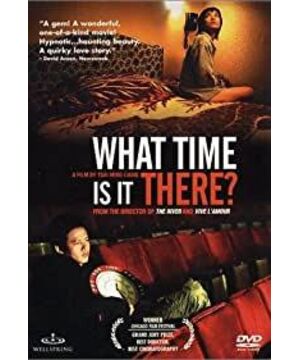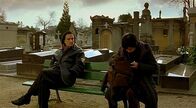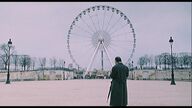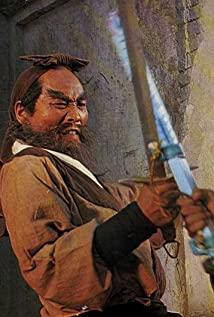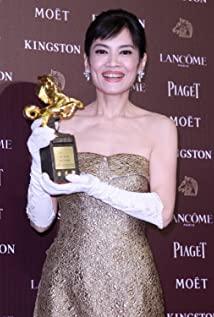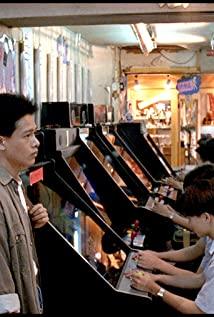At the literary level, this can be regarded as a work of prose. The story is very simple, with only basic lines: after the death of Xiaokang's father, the superstitious wife always believes that her husband's soul will return home; Xiangqi, who was going to Paris, bought a watch in his hand. After that, Xiaokang became curious about the time in Paris inexplicably. Xiangqi also lived a lonely life in France. The story thus tells the story of three people, and the connection between the characters is very weak, and the connection is established through Xiaokang. Although Xiaokang and his mother belong to the same family relationship, the alienation of family life allows the two to live in their own space; Xiaokang and Xiangqi only establish a connection in the transaction behavior of buying a watch and buying a watch. The three live alone in their own space and time. The movie keeps showing the details of their respective lives: the mother buys roast goose alone, burns incense at home and turns off the lights, waiting for her husband to come back; Xiaokang is afraid to go to the toilet in the middle of the night, eats supper alone at night, and listens to the car alone. Broadcasting, one person collects time; Xiang Qi is in the French language and culture barrier, one person lives in a hotel... They hardly communicate with others and rarely speak, these different pictures of one person's life are superimposed to form the whole film . So the movie is like prose, it is difficult to produce continuity in content, but it maintains the consistency of emotions.
It is not difficult for the audience to feel the loneliness of the characters in the film, and this loneliness has even become an emotional realm. On the one hand, loneliness comes from the behavior of the characters themselves, and a person's way of life produces a sense of loneliness; on the other hand, loneliness comes from the expression of influence, and the use of a large number of fixed and long shots makes the narrative extremely slow. Characters complete a series of complete actions under the still camera, such as Xiaokang peeing, and the director must present it from the beginning to the end. Moreover, the lens is often at a distance from the character, that is, the character is in the background, and the distance between the object or character and the audience is pulled away, which causes a sense of alienation in watching movies. The combination of character behavior and film and television techniques together create a sense of loneliness in the film. The constant accumulation of these loneliness, even if it does not heat up, will affect the viewer's emotions through the accumulation of quantity. With such a narrative, you would think that the "story" could go on indefinitely, because there is no ending that can end it.
Tsai Mingliang's genius lies in extending many aspects he wants to express in such stories and emotions, and these aspects give the film connotation and depth. For example, the loneliness of the characters is the emotion that the film directly wants to convey. This kind of loneliness is similar to the loneliness in Wong Kar-wai's lens. It is a product of modern urban society. The lack of communication between people results in emotional alienation. Everyone has a hole in their heart that needs to be filled. So there are some weird behaviors of weird characters who persistently seek or wait for something ethereal to fill the void in their hearts. Just like Xiaokang's obsession with collecting time, his wife's superstitious waiting for her husband, expired canned pineapples and drunken wine.
Not only that, Cai Mingliang also expressed the absence of "father" in the film. This is a typical issue in Taiwanese society, and it is also a theme that directors continue to express in new Taiwanese films. ""Wedding Banquet""Diet Men and Women"). They are all about how "we" are to grow up and where to go in a society where fathers are missing. In "What Time Are You Over There", Xiaokang is like a little boy, afraid of the dark and naive. Without his father, there is no one to guide him to grow up. There is no introduction to Xiang Qi's background video, but she lives alone in Paris, without friends or relatives, like an orphan. At the end, a fatherly-aged man appears in the expansive film background, staring at Xiang Qi, then at the camera, before turning away. Might as well think of him as a "father", he looked at Xiang Qi and the camera on behalf of the audience, he left "us" a back, he did not participate in "us", did not participate in "our" life, did not lead How "we" grow. The father's back just implies that "we" need time to grow up by ourselves. The final speech of the film is "First to my father, Xiaokang's father". Of course, this is neither the director's father, nor Xiaokang's father, but the father of "our" generation.
In addition, thinking about time, the relationship between space and memory, and conflicts in family life can all be incorporated into Cai Mingliang's expression of the film's connotation. Cai Mingliang elucidates his thoughts on modern society through such an extremely simple and rambling story and his free image processing.
View more about What Time Is It There? reviews


